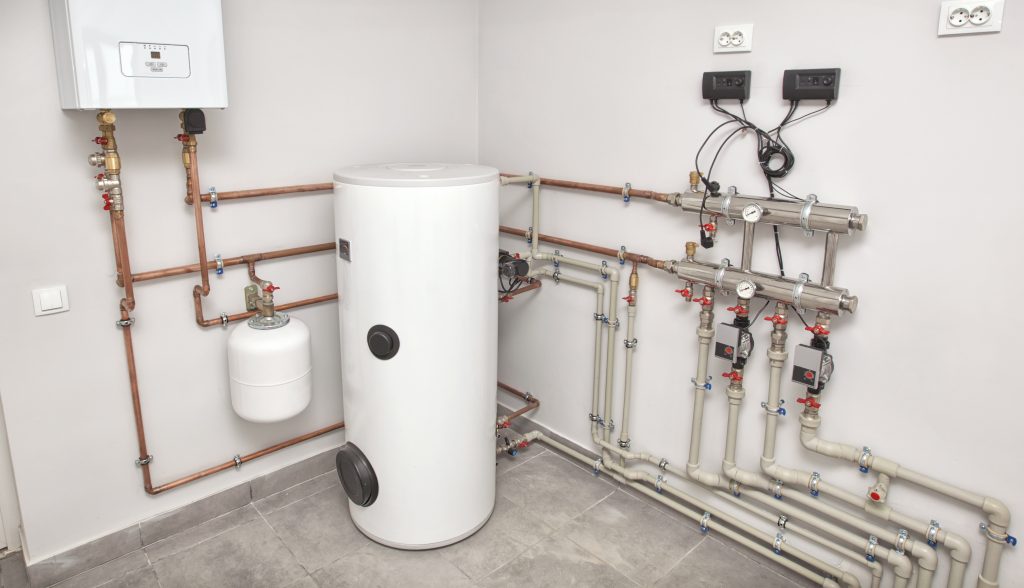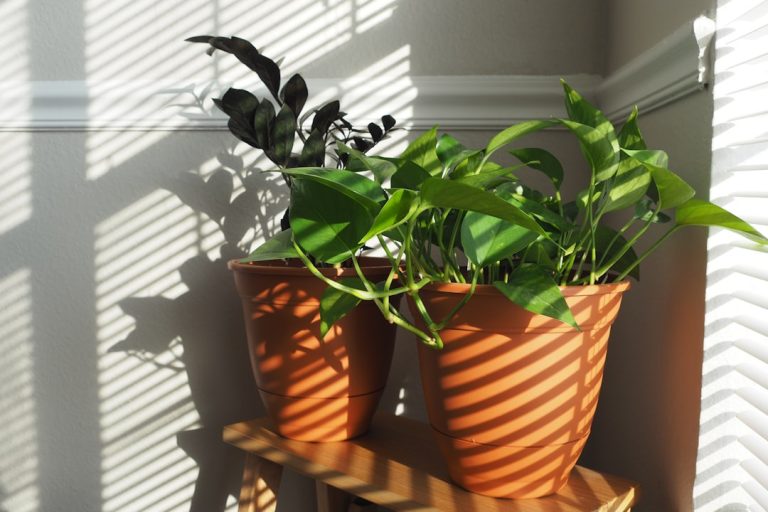When it comes to heating your home, there are several options available, including heat pumps and boilers. Understanding the differences between these two systems is important in order to make an informed decision about which one is best for your home. In this article, we will explore the ins and outs of heat pumps and boilers, including how they work, their energy efficiency, maintenance costs, lifespan, environmental impact, and government incentives. By the end of this article, you will have a clear understanding of which option may be best for your home.
Key Takeaways
- Heat pumps and boilers are two common heating options for homes.
- Heat pumps are more expensive to install but have lower maintenance costs and higher energy efficiency than boilers.
- Boilers have a longer lifespan than heat pumps but are less energy efficient and have higher maintenance costs.
- Both options have an impact on the environment, but heat pumps are generally considered more eco-friendly.
- Government incentives and rebates are available for both options, and choosing the best option for your home depends on your specific needs and budget.
Understanding Heat Pumps and Boilers
A heat pump is a device that transfers heat from one place to another using a refrigerant. It can be used for both heating and cooling purposes. In heating mode, a heat pump extracts heat from the outside air or ground and transfers it into your home. It does this by using a compressor to increase the temperature of the refrigerant, which then releases the heat into your home through a series of coils.
On the other hand, a boiler is a device that heats water or another liquid to provide warmth to your home. The heated water or liquid is then circulated through pipes and radiators or underfloor heating systems to distribute the heat throughout your home. Boilers can be powered by various fuels, including natural gas, oil, or electricity.
There are different types of heat pumps and boilers available on the market. Heat pumps can be categorized into air source heat pumps (ASHP) and ground source heat pumps (GSHP). ASHPs extract heat from the outside air, while GSHPs extract heat from the ground. Boilers can be categorized into conventional boilers, system boilers, and combi boilers. Conventional boilers require a separate hot water cylinder and cold water storage tank, while system boilers have built-in components for heating and hot water. Combi boilers provide both heating and hot water on demand without the need for a separate cylinder or tank.
The Cost of Installation
The upfront costs of installing a heat pump or boiler can vary depending on several factors, including the size of your home, the type of system you choose, and the complexity of the installation. Generally, heat pumps tend to have higher upfront costs compared to boilers. This is because heat pumps require additional components, such as an outdoor unit and refrigerant lines, which can increase the overall cost of installation.
In addition to the upfront costs, there may be additional costs associated with the installation of a heat pump or boiler. For example, if you are installing a ground source heat pump, you may need to drill boreholes or lay horizontal ground loops, which can add to the overall cost. Similarly, if you are installing a boiler, you may need to upgrade your existing heating system or make modifications to accommodate the new boiler.
Energy Efficiency: Heat Pumps vs Boilers
| Metrics | Heat Pumps | Boilers |
|---|---|---|
| Efficiency | 300-400% | 80-98% |
| Cost | Higher upfront cost, lower operating cost | Lower upfront cost, higher operating cost |
| Lifespan | 15-25 years | 10-15 years |
| Environmental impact | Lower carbon emissions, no combustion | Higher carbon emissions, combustion |
| Heating capacity | Less effective in extreme cold temperatures | Effective in extreme cold temperatures |
When it comes to energy efficiency, heat pumps have a clear advantage over boilers. Heat pumps are able to transfer heat from one place to another using a small amount of electricity. This means that for every unit of electricity consumed by a heat pump, it can produce several units of heat energy. In comparison, boilers generate heat by burning fuel, which is less efficient and can result in energy wastage.
The energy efficiency of a heat pump is measured by its coefficient of performance (COP). The COP represents the ratio of heat output to electrical input. A higher COP indicates a more efficient heat pump. On average, air source heat pumps have a COP of around 3-4, meaning they can produce 3-4 units of heat for every unit of electricity consumed. Ground source heat pumps have even higher COPs, typically ranging from 4-5.
Boilers, on the other hand, have an efficiency rating known as the seasonal efficiency of domestic boilers (SEDBUK). This rating represents the efficiency of the boiler over a typical heating season. The higher the SEDBUK rating, the more efficient the boiler. Conventional boilers tend to have lower SEDBUK ratings compared to system boilers and combi boilers.
The energy efficiency of your heating system can have a significant impact on your monthly utility bills. By choosing a more efficient heat pump, you can potentially save a significant amount of money on your heating costs in the long run.
Maintenance Costs
When it comes to maintenance costs, heat pumps generally require less maintenance compared to boilers. Heat pumps have fewer moving parts and do not burn fuel, which means there is less wear and tear on the system. However, it is still important to regularly maintain your heat pump to ensure optimal performance.
Maintenance tasks for heat pumps typically include cleaning or replacing air filters, checking refrigerant levels, and inspecting electrical connections. It is recommended to have a professional technician perform these maintenance tasks at least once a year.
Boilers, on the other hand, require regular maintenance to ensure safe and efficient operation. This includes tasks such as cleaning or replacing the burner, checking and adjusting the gas pressure, and inspecting the flue for any blockages. It is also important to have your boiler serviced annually by a qualified technician.
In terms of potential repair costs, both heat pumps and boilers can experience issues that may require repairs. However, since heat pumps have fewer moving parts, they tend to have fewer potential points of failure compared to boilers. This means that heat pumps may have lower repair costs in the long run.
Lifespan of Heat Pumps and Boilers

The typical lifespan of a heat pump is around 15-20 years, while boilers can last anywhere from 10-15 years. However, it is important to note that these are just average lifespans and can vary depending on factors such as the quality of the system, regular maintenance, and usage patterns.
Several factors can impact the lifespan of a heat pump or boiler. For heat pumps, exposure to extreme weather conditions, such as high temperatures or heavy snowfall, can shorten their lifespan. Similarly, for boilers, poor water quality or lack of regular maintenance can lead to premature failure.
It is important to consider the lifespan of your heating system when making a decision about which option is best for your home. Investing in a system with a longer lifespan can save you money in the long run by reducing the need for frequent replacements.
The Impact on the Environment
When it comes to the environmental impact, heat pumps are considered to be more eco-friendly compared to boilers. Heat pumps do not burn fossil fuels and instead rely on electricity to transfer heat. This means that they produce fewer greenhouse gas emissions and have a lower carbon footprint compared to boilers.
In addition to their lower carbon footprint, heat pumps also have other eco-friendly features. For example, ground source heat pumps use renewable energy from the ground, which is a sustainable resource. Heat pumps also have the potential to be powered by renewable electricity sources, such as solar or wind power, further reducing their environmental impact.
Boilers, on the other hand, burn fossil fuels such as natural gas or oil to generate heat. This combustion process releases carbon dioxide (CO2) and other greenhouse gases into the atmosphere, contributing to climate change. While there are more efficient boilers available on the market that produce fewer emissions, they still cannot match the low carbon footprint of heat pumps.
Government Incentives and Rebates
To encourage homeowners to switch to more energy-efficient heating systems, many governments offer incentives and rebates for installing heat pumps or boilers. These incentives can help offset the upfront costs of installation and make these systems more affordable.
In some countries, such as the United States and the United Kingdom, there are federal or state-level incentives available for installing heat pumps or boilers. These incentives can include tax credits, grants, or low-interest loans. It is important to check with your local government or energy authority to see what incentives are available in your area.
To take advantage of these incentives, you will typically need to meet certain criteria, such as using an approved installer or purchasing a system that meets specific energy efficiency standards. It is important to carefully review the eligibility requirements and application process to ensure you qualify for the incentives.
Choosing the Best Option for Your Home
When it comes to choosing the best option for your home, there are several factors to consider. First and foremost, you should consider your heating needs and the size of your home. Heat pumps are generally more suitable for well-insulated homes with moderate heating requirements, while boilers may be a better option for larger homes or those with higher heating demands.
You should also consider your budget and the upfront costs of installation. While heat pumps may have higher upfront costs compared to boilers, they can potentially save you money on your monthly utility bills in the long run. It is important to weigh the initial investment against the long-term savings when making your decision.
Additionally, you should consider the environmental impact of each option. If reducing your carbon footprint is a priority for you, then a heat pump may be the better choice. However, if you have access to renewable energy sources or are considering installing solar panels in the future, then a boiler may be a more viable option.
It is also important to consult with a qualified heating professional who can assess your home’s heating needs and provide expert advice on which option is best for you. They can help you determine the appropriate size and type of system for your home and provide accurate cost estimates.
Which One Saves You More Money in the Long Run and is Eco-Friendly?
In conclusion, both heat pumps and boilers have their own advantages and disadvantages. Heat pumps are more energy-efficient, have lower maintenance costs, and have a longer lifespan compared to boilers. They also have a lower environmental impact and may be eligible for government incentives and rebates. However, heat pumps tend to have higher upfront costs compared to boilers.
Boilers, on the other hand, may have lower upfront costs and can provide higher heat output for homes with larger heating demands. However, they are less energy-efficient, have higher maintenance costs, and have a shorter lifespan compared to heat pumps. They also have a higher environmental impact due to the combustion of fossil fuels.
Ultimately, the best option for your home will depend on your specific needs and circumstances. If you prioritize energy efficiency and reducing your carbon footprint, then a heat pump may be the better choice. However, if upfront costs and higher heat output are more important to you, then a boiler may be the more suitable option.
It is important to carefully consider all the factors discussed in this article and consult with a heating professional before making your decision. They can provide personalized advice based on your home’s heating needs and help you choose the best option for your home.
If you’re interested in learning more about the running costs of heat pumps versus boilers, you might also want to check out this informative article on ecofriendlyhomeandgarden.com. It provides valuable insights into the cost-effectiveness of different heating systems and offers practical tips for sustainable living. To read the article, click here: https://ecofriendlyhomeandgarden.com/building-an-earth-friendly-home-tips-for-sustainable-living/.
FAQs
What is a heat pump?
A heat pump is a device that transfers heat from one place to another, typically from the outside air or ground to the inside of a building, to provide heating and cooling.
What is a boiler?
A boiler is a device that heats water to provide central heating and hot water for a building.
What is the difference between a heat pump and a boiler?
A heat pump uses electricity to move heat from one place to another, while a boiler burns fuel to heat water. Heat pumps can provide both heating and cooling, while boilers only provide heating.
Which is more energy-efficient, a heat pump or a boiler?
Heat pumps are generally more energy-efficient than boilers, as they can provide up to 4 units of heat for every 1 unit of electricity used. Boilers typically have an efficiency rating of around 90%.
Which is cheaper to run, a heat pump or a boiler?
The running costs of a heat pump and a boiler depend on a number of factors, including the cost of electricity and fuel, the efficiency of the system, and the size of the building. In general, heat pumps are cheaper to run than boilers, especially if they are used for both heating and cooling.
What are the advantages of a heat pump over a boiler?
The advantages of a heat pump over a boiler include higher energy efficiency, lower running costs, and the ability to provide both heating and cooling. Heat pumps are also more environmentally friendly, as they do not produce any emissions.
What are the disadvantages of a heat pump compared to a boiler?
The disadvantages of a heat pump compared to a boiler include higher upfront costs, the need for electricity to run the system, and the fact that they may not be suitable for very cold climates. Heat pumps also require regular maintenance to ensure they are working efficiently.


